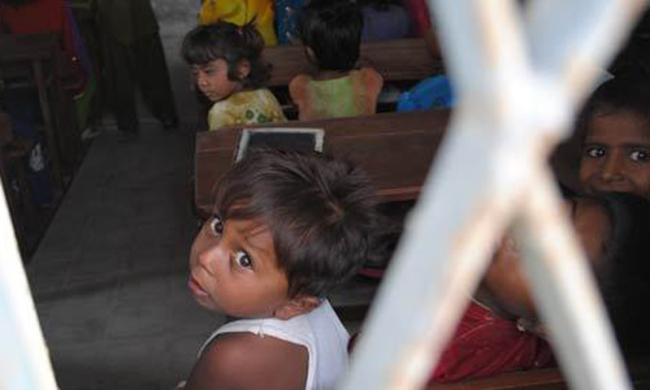The number of schools in the most underdeveloped district in Sindh is roughly twice the number of total villages.
According to education department records, there are 4,153 operational schools in 2,484 villages of Tharparkar district.
The schools are “operating” on paper only and are not even remotely related to providing education to children living in these villages. Such schools are used only to embezzle government funds received for their management, Dawn reliably learned. A couple of years ago, more than 50 percent of ghost schools in the district were reopened by local influential persons in connivance with officials of the education department.
According to education department records, there are 4,153 operational schools in 2,484 villages of Tharparkar district.
The schools are “operating” on paper only and are not even remotely related to providing education to children living in these villages. Such schools are used only to embezzle government funds received for their management, Dawn reliably learned. A couple of years ago, more than 50 percent of ghost schools in the district were reopened by local influential persons in connivance with officials of the education department.

The schools regularly receive funds, ration for students, stipends and scholarships which the bogus schools management committees ― comprising the supposed supervisor, teacher and at times the education district officer and additional district officer ― distribute among themselves, according to sources in the education department.
According to regulations of the education department, a primary school has to be opened after every 2 kilometers. However, since the education officers have a stake in school funds, they have been more than generous in opening as many as 60 bogus schools in a single village, said the sources.
These officials have evaded notice by maintaining fake records for students’ enrolment and semis code.
A school with a semis code receives Rs22,500 per year as school management committee fund, a stipend of Rs250 for every girl student enrolled and the person who opens the school in his locality or village gets the job of a lower staff or a naib qasid. Moreover, funds and wheat, oil and ghee are also given by the World Food Program and Tawana Pakistan Project for these schools.
According to education department records, there are 61 primary schools for boys and girls and one high school in Vaouridora village in Chhachhro taluka which has a total population of 6,580 people.
Around 3,950 boys and girls ― 60 percent of the population ― have been shown enrolled in these schools, also having 182 students who have even studied up to college or university. Out of these 62 schools, 42 do not even have a building but have been allotted a semi code by education officials.
Meanwhile, 27, 22 and 17 schools have been supposedly functioning in Chhachhro, Diplo and Islamkot towns, respectively.
A greater number of schools are operating in several villages of Tharparkar district having a population of less than 5,000 people.
A senior teacher who worked with the Tawana Pakistan Project confirmed that many schools in Thar maintained bogus records of students’ enrollment. “Wheat and oil obtained for these schools is openly sold in the market of these villages and towns,” he said. An education official who wished not to be named shed some light on “the rationale behind opening several schools in a single village.”
He said that influential persons of various communities used their clout to get as many schools opened as possible because for each school opened in a village, bogus teachers gave a cut of their loot to the school supervisor and the influential person who had got the school opened. If a teacher paid Rs1,000 a month to the supervisor, then more schools meant more teachers and more money, he explained.
Tharparkar district education officer Abdul Majid Hur said that the matter was being probed thoroughly. He said that he would not hesitate to make a stern decision for putting the educational system in Thar on sound footing and ensuring that quality education was imparted in schools.
For about two years now, people working in such bogus schools in connivance with the education department have managed to pull the wool over the eyes of stakeholders who are funding these schools.
By Prem Shivani
(Dawn)
-
Articles by Korea Herald












![[Today’s K-pop] BTS pop-up event to come to Seoul](http://res.heraldm.com/phpwas/restmb_idxmake.php?idx=644&simg=/content/image/2024/04/17/20240417050734_0.jpg&u=)





![[KH Explains] Hyundai's full hybrid edge to pay off amid slow transition to pure EVs](http://res.heraldm.com/phpwas/restmb_idxmake.php?idx=652&simg=/content/image/2024/04/18/20240418050645_0.jpg&u=20240418181020)

![[Today’s K-pop] Zico drops snippet of collaboration with Jennie](http://res.heraldm.com/phpwas/restmb_idxmake.php?idx=642&simg=/content/image/2024/04/18/20240418050702_0.jpg&u=)